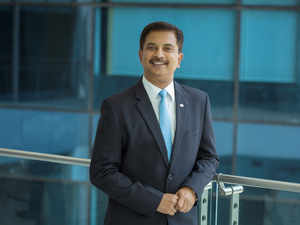 ET Online
ET OnlineMirae Asset is the latest one to fall in love with the ESG theme. What is the reason for the fascination of the mutual fund industry with this relatively new theme?
In simple terms, ESG Investing can be termed as investing in companies that focuses on Planet, People and Profit. It is generally observed that an organization that integrates all 3P’s into its core corporate structure, tends to have a competitive advantage over others which in turn translates to sustainable profit in the long run. ESG Investing allows investor to focus on “avoid, benefit and contribute”, whereby investor investing in ESG funds by avoiding in certain companies that are not ESG compliant will benefit in terms of higher return and lower risk along with ability to contribute towards the society.
Across the globe ESG phenomenon is rising which is evident from the AUM under sustainable investing that has doubled from US $ 13.3tn in 2012 to US$30tn in 2018. There are multiple factors that have led to significant amount of interest in ESG Investing:
- There is increased focus on contributing to the society by rewarding the companies which aim for sustainable development. The investors want to avoid company which have poor governance record or negative social behavior. For example, 65% of global consumers are making belief-driven purchases which is when a consumer chooses principle over product.
- There has been rise in change in climatic condition across the world. Climate risk is now termed as critical investment risk among large asset managers. For example, Article 173 in France asks investors to report on how they account for environmental, social and corporate governance (ESG) criteria, with specific mention of climate, in their investment policies.
- The opportunity to align investment with one’s core value and belief without compromising on the financial return has contributed to the growth of sustainable investing. Empirical evidences have demonstrated that sustainable investing has usually met, and often exceeded, the performance of comparable traditional investments.
Intermediaries are trying to push ESG as a panacea for all troubles. Not happy with large cap, try ESG. Not happy with new multi cap norms, try ESG… You are known for your realistic assessment of situations. Tell us what ESG can do and what it cannot.
I think by discussing pro and cons of ESG, we will get a better understanding of what ESG can do and what it cannot.
Pros of ESG funds can be categories as:
- The opportunity to align your investment with your value without any performance penalty
- In the long run ESG funds tends to have potential to generate higher wealth along with lower volatility
- Incentivizes the companies to focus not only on profit but also planet and people.
- Companies with strong ESG practice tends to have lower cost of capital coupled with higher profitability. This generally leads to premium valuation and competitive advantage over the peers.
- ESG factors can be leading indicator that may highlight any material risk that may not be governed by financial analysis
- Investor needs to understand ESG funds can be different types some may follow only exclusionary screening, some may follow best-in-class approach and some may follows integrating ESG. So, it is important for investor to understand all these different types of categories.
- Investors needs to be aware of greenwashing, where company claims to be ESG compliant but it is not, for this it is important for investor to understand process and framework of ESG funds of labelling constituent as ESG compliant
- Investor should not confuse ESG funds with ethical/religious investment where individual morale value takes a primary consideration and financial returns takes a secondary consideration
- ESG as a theme is long-term proposition, investor should not use it for taking a tactical call
When we compare the amount of wealth that investors have lost in last two to three years in India due to governance fiasco, sour relationship with labor union, closure of plants, product alteration as against the expense involved towards commitment to environment and governance, we realize that such expenditures are necessary. Only by committing itself to planet, people and profit company will be able to develop sustainable business model in the long run. Sustainable business model than translated to having competitive advantage over its peers, ultimately resulting in higher profitability. Further the company that has strong ESG risk management practice has lower probability for occurrence of severe events, enjoys favorable relation with the regulator and various stakeholders. In longer period eventually, companies benefit by bringing strong discipline in terms of ESG. Empirical studies have documented that ESG complaints tends to reduction in cost of capital, improvement in operational performance and have positive influence on the stock prices.
What is your advice to investors betting on ESG theme? What should they expect? And what they shouldn’t?
Returns from any asset whether equity or fixed income are not static and changes over the time because of the structural shift that occurs . These changes can be because of ESG factors. Thus, an investor can form his core portfolio using ESG theme as ESG tends to have impact on structural shift which is important in the long run. ESG theme portfolio can form part of your core portfolio as such portfolio has an option to create higher wealth with lower risk in the long run. Hence by investing in an ESG portfolio you are not only contributing to a better tomorrow by incentivizing companies to incorporate ESG practices but you are doing so with the possibility of generating higher wealth with lower risk. ESG funds should be considered predominantly for doing strategic asset allocation and not to take tactical calls. Investors should expect a short-term multi-fold increase in their wealth by investing in ESG theme.
Equity investors continue to be worried about the market conditions. What is your assessment of the situation?
Investment in equity is for the long-term horizon and an investor shouldn’t panic about “one-off event” such as COVID-19. In the past we have witnessed that market goes through different cycle and an investor who has remained invested across the multiple cycle is able to generate and accumulate higher wealth. Further, COVID-19 is likely have significant impact on FY 21 earnings, but after that, earnings of the companies are expected to revert to mean. We find the markets as reasonably attractive on from a long-term view - that is, from a 3-year viewpoint – considering we believe that Price to Book Value ratio (Price/BV) is better indicator of market valuation in the current scenario – on FY 2, forward P/BV, Nifty is at 2.5x which is slightly above its last five year means. Sectorally, financials trade at -18% discount to its 5 year P/BV. We entered the crisis, when economy was coming out of recession with PAT/GDP at a 15 year low at 2.5% in FY 20. Post solution to COVID-19, we see less scope for long-term contraction on this favourable base.
Miare Asset managed to navigate the tricky market situation in the last two years. Most equity schemes have done well during the period. What is the secret strategy?
For us it is important to look at the stock selection process, we at Mirae believe in participating in quality business by evaluating them in three buckets – Business, Management and Valuation. Sub- par quality business are avoided or quality business carrying a very high price tag are also avoided. Along with the stock selection process, it is important to assess the portfolio construction mechanism. We at Mirae deploy discipline in maintaining diversification in our various funds. Having disciplined diversified portfolio helps in handling mistake and delivering decent risk adjusted returns. Prudent stock selection process coupled with disciplined approach in portfolio construction has a potential for an equity funds to deliver strong returns.










 Get Unlimited Access to The Economic Times
Get Unlimited Access to The Economic Times
